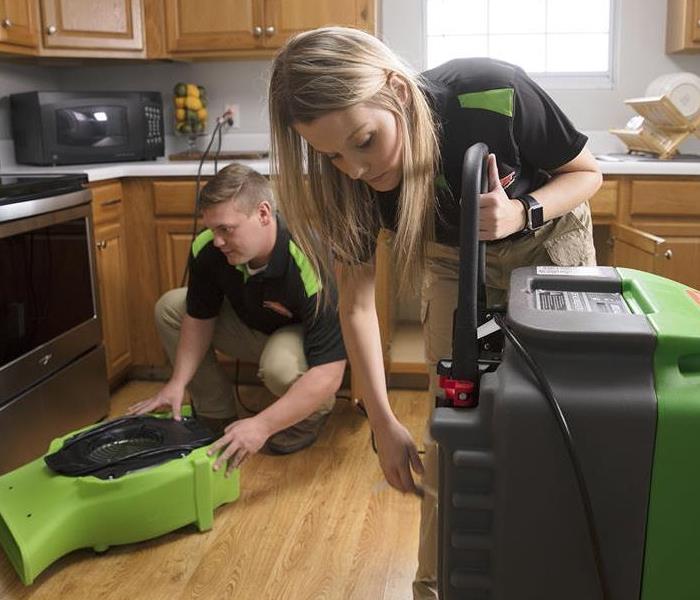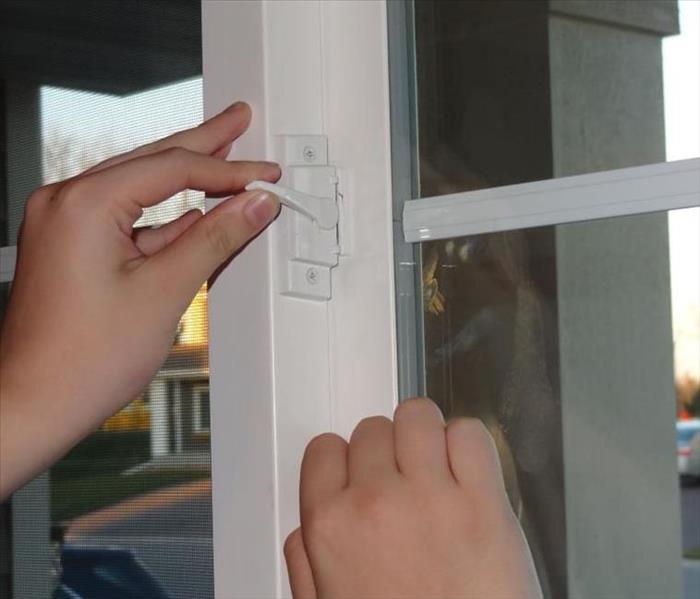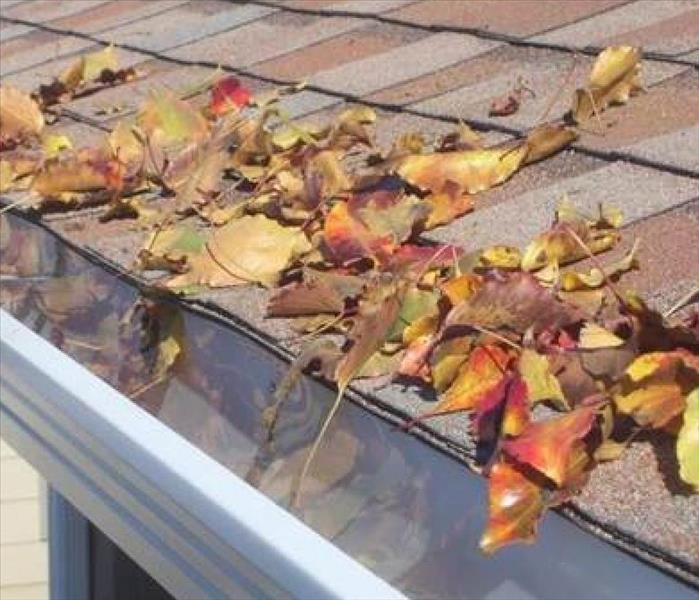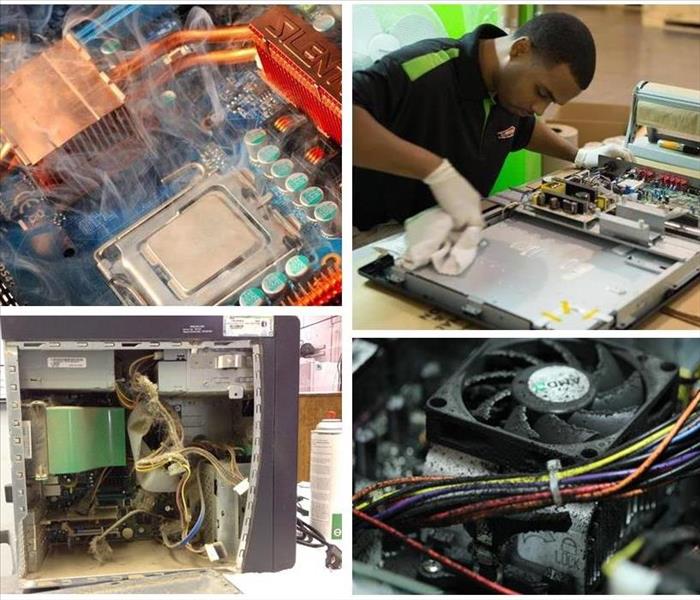24/7/365 Coverage For Easton, Bethlehem, and Whitehall
1/11/2023 (Permalink)
 Our dedicated team is ready to make any size disaster "Like it never even happened." with our 24/7/365 service.
Our dedicated team is ready to make any size disaster "Like it never even happened." with our 24/7/365 service.
SERVPRO of Easton, Bethlehem, & Whitehall provides around the clock service and is faster to any and all disasters across the Lehigh Valley. Our highly-trained and dedicated staff is equipped to handle your cleaning, restoration, and reconstruction needs.
Questions? Call Us 24/7 at 610-559-9380
Residential Coverage
You can depend on SERVPRO Team Davis to handle any emergencies that your Easton, Bethlehem, or Whitehall home may face. Our crew of production technicians are extensively trained in the best cleaning and restoration practices to ensure your property will be back to new as soon as possible. Our residential services include:
- Fire, Smoke, and Soot
- Water Removal and Dehumidification
- Mold Remediation
- Move Outs and Content Restoration
- Deodorization
- And More!
Learn more about our residential restoration services by visiting our website at: https://www.SERVPRO.com/locations/pa/SERVPRO-of-easton-bethlehem-and-whitehall
Thanksgiving Cautions: Dangers to Consider before Deep Frying Your Turkey
11/19/2018 (Permalink)
Serving a deep fried turkey on Thanksgiving has grown in popularity over the years as people experiment more in their kitchens. While it may be a mouth-watering option is the risk truly worth it? Many of you may have seen the numerous videos of turkey fryer explosions and fires publicized online. Don’t run the risk of property damage or injury – make sure you take the proper precautions when menu planning this season; especially if you are taking on a deep fried turkey.
- Turkey Fryers can easily tip over, spilling hot cooking oil over a large area. Consider placement of the fryer, is it flat, sturdy, out of reach from children?
- An overfilled cooking pot will cause oil to spill when the turkey is put in and a frozen or partially frozen turkey will cause cooking oil to splatter (sometimes with great force) when put in the pot
- Even a small amount of cooking oil spilt on a hot burner can cause a considerable flame or fire
- Without thermostat controls some turkey fryers can overheat oil to the point of starting a fire. Make sure it’s not too hot.
- The sides of the cooking pot, lid and handles can get dangerously hot. Protect you hands when maneuvering to prevent injury or spillage
Your friends at SERVPRO of Easton, Bethlehem & Whitehall wish you a Happy Thanksgiving and remind you to stay safe. Remember, our team is on call 24/7 365 days a year, no matter what holiday or time of night. If you experience a fire SERVPRO of Easton, Bethlehem & Whitehall will come to your rescue, don’t hesitate to call 800-455-9453.
Use These Tips to Save Money
5/4/2018 (Permalink)
Your home is likely your biggest investment, and requires routine maintenance to keep it in good shape. Some things can be tackled on an annual basis while others should be done monthly. Here is our suggested list to keep your home running smoothly this year.
Monthly
Frequently used items require regular attention. Clean out your garbage disposal and regularly replace air filters. You should also periodically check your roof for leaks.
Seasonally
A seasonal checklist is easiest during mild weather. Commit to a few simple tasks like trimming trees and shrubs away from your home's exterior. While you are out there, check your gutters and clean out any leaves or debris that can lead to water backing up
Also, take a moment to inspect the weather stripping that is around windows and doors. If you see cracks or broken seals, this is an easy replacement that will save money on heating and cooling costs.
Annually
Inspect all your fire extinguishers and make sure they are up to date and fully pressurized. Set aside one day a year to do things like schedule a chimney cleaning and have your HVAC system inspected.
Organizing home maintenance tasks into a manageable schedule can help your prioritize prevention and save you money in the long run.
Deodorization Powers of Ozone Gas
4/12/2018 (Permalink)
Many consumers may have heard miraculous deodorization powers of Ozone gas. What is ozone you may ask? Here is an explanation. “Ozone (O3) is a highly reactive molecule and is very quick to chemically react with particles that it comes into contact with in the air and on surfaces” according to Ozonesolutions.com in an article titled “How Does Ozone Remove Odors.” Since Ozone is a volatile and reactive molecule, it is able to break down bacteria’s, molecules, or molds that are causing odors in homes. The fact that ozone is a gas means it can seek out hard to reach spaces and clean locations that you may not be able to find. Essentially, Ozone is able to clean anywhere that air can reach in a structure.
There are some safety concerns to be aware of. Ozone is deadly to what SERVPRO calls the three P’s, which includes people, pets, and plants. Additionally, Ozone can bleach materials such as carpeting or furniture under the correct conditions. Contact a SERVPRO professional to find out if using Ozone at your home or business is right for you to take care of any unwanted odors.
SERVPRO of Easton, Bethlehem & Whitehall - 800-455-9453
Source: Ozone Solutions
Electronics Restoration
2/9/2018 (Permalink)
Electronics are delicate items, as there are many factors that cause them to stop working properly. Since many irreplaceable items are stored electronically, it’s important to be prepared for the worst scenario. In the event of a fire, here is what you need to know about smoke damage and your electronics.
How Smoke Causes Damage
- When electronics are covered in smoke, they become prone to extreme overheating, which leads to eventual failure. When smoke reaches the inside components of electronics, a black film develops causing insulation on the heat-producing parts. The magnetic charge of smoke causes the circuits to short.
- Soot is pushed by smoke, causing contact everywhere in its path. Smoke travels to cooler temperatures and continues until its energy runs out. The main cause of damage is the acidity in soot. Acidity destroys metals, which causes discoloration and disintegration inside of your electronics.
Restoration for Electronics
- After a fire, damaged electronics are a safety hazard. To prevent exposure, do not turn on any of the items before consulting with a professional. The smoke’s corroding acids will immediately cause failure to the device.
- If you choose to clean the items without turning them on, wipe off the residue with a cloth. Taking immediate action will improve the likelihood of your devices surviving.
Helpful Tips
- When recovering a computer, the most important part is the hard drive. Every bit of information is located on this, so removing these files as quickly as possible is crucial.
- Replacing the computer’s battery is the next step in the recovery process. If it’s not replaced, the combustion of batteries can be dangerous.
- To prevent your computer’s data being damaged from fire or smoke, consider investing in a backup program that stores the information somewhere else. Examples of this would be either and external hard drive or cloud based storage. These two items are essential for keeping those special documents safe. Most external hard drives can be found for under $100, and there are many excellent cloud based storage programs that are free.
- It is important to make sure your files are backed up weekly, you can never be too prepared.
Helpful Tips to Cut Your Home Heating Bills
1/7/2016 (Permalink)
 Resource: http://www.popularmechanics.com/home/how-to/g737/9-sneaky-ways-to-cut-your-home-heating-bills/
Resource: http://www.popularmechanics.com/home/how-to/g737/9-sneaky-ways-to-cut-your-home-heating-bills/
Even in the middle of winter, you can slash your energy bills without sacrificing comfort.
Winter is officially here and the temperatures reflect that. It’s difficult not to notice the impact decreasing temperatures have on our home heating bills. Popular Mechanics’ Brett Martin has a few helpful tips for around the house that can reduce how much you need to spend to keep your home warm and toasty.
Replace Worn Weatherstripping
• Worn and torn weatherstripping around doors and windows creates drafts and lets in cold air. Seven to 12 percent of a home's heat loss occurs around windows and doors, according to Black Hills Energy, and these leaks often prompt homeowners to turn up their furnace to keep comfy. Even if they don't turn it up, they're losing warm air, causing the furnace to work harder. "Weatherstripping around doors, and caulking around doors and windows, can cut down on drafts," says Jeff Rogers, president of the Energy Audit Institute, an energy audit training and certification company in Springfield, N.J.
• Some weatherstripping needs to be replaced every few years because of wear. Replacing it is typically as simple as pulling off the old and tacking on the new.
Adjust Door Thresholds
• If you can see daylight under your front door, then you're losing the indoor air you've paid to heat. "If the door is not in contact with the threshold, the air is going right under the door," Rogers said.
• Some thresholds have four or five screws that let you adjust the height to eliminate a gap. Turn the screws counterclockwise to lift the threshold until daylight is mostly gone. A little light in the corners is okay, but don't raise the threshold so high that it interferes with opening and closing the door. And the door shouldn't drag on the threshold or it'll wear out the weatherstripping.
Plug Holes in Exterior Walls
• Pipes, gas lines, and electrical cables that enter your house often have gaps around them that have been haphazardly filled with some kind of caulk. But that caulk eventually cracks, peels, and falls off. These gaps let in outside air, plus they are ideal entry points for mice and insects.
• Seal the gaps with expanding foam. For water pipes under the sink, unscrew and pull back the escutcheon ring, then caulk around the pipe.
Cover Windows and Patio Doors with Plastic Film
• Rogers says that windows account for 25 percent of heat loss in homes. Covering the windows and sliding patio doors with clear plastic film can reduce that loss. "Just by using that plastic, you're going to save about 14 percent on your heating bill," he says.
Keep Warm Air from Escaping Up the Chimney
• Even when the chimney flue is closed, some warm air is probably still getting away. An easy solution is to block the airflow with an inflatable chimney balloon. The balloons are available on amazon.com and other retailers to fit various chimney sizes. They cost about $50. "They can save you up to $100 a year, so they're going to pay for themselves twice a year," Rogers says. "They are definitely a good investment."
• Blow up the balloon and stick it in the chimney. If you forget to take it out before you start a fire, the balloon automatically deflates, so it won't cause the house to fill with smoke. However, be advised that the balloons can become sooty and hard to manage after repeated uses.
Seal Air Leaks in Ductwork
• Take a look at the ductwork that's accessible in your basement or attic. Look for places where the ducts may have pulled apart at seams and corners. According to Energy Star, the typical house with forced-air heating loses about 20 to 30 percent of the air that moves through the system to leaks, holes, and poorly connected ducts. Place a mastic sealant or metal tape over any leaks to seal them.
Use the Sun To Your Advantage
• Keep your curtains open during the day, especially on the south side of the house where you get more direct sunlight. Trim any tree branches or shrubs that block the sunlight around your windows to maximize the gains. Close the curtains at night so they act as barriers to reduce drafts.
Keep Heating Registers Clear
• The warm air blowing out of your registers needs a clear path into the room to provide even heating. To cut heating costs, arrange your room so that the register is as unobstructed as possible.
Lock Door and Windows
• Even when doors and windows are closed, they might not be pressed tight against the weatherstripping if they're not locked, which allows cold outside air to infiltrate the home. This makes a difference for your heating bill. Lock your windows early, especially if you live up north. If they freeze in their current positions, then they won't move and you won't be able to lock them without a lot of work.
To view the complete list of tips and tricks to reduce your heating bill, visit Popular Mechanics.
 Our dedicated team is ready to make any size disaster "Like it never even happened." with our 24/7/365 service.
Our dedicated team is ready to make any size disaster "Like it never even happened." with our 24/7/365 service.





 24/7 Emergency Service
24/7 Emergency Service


